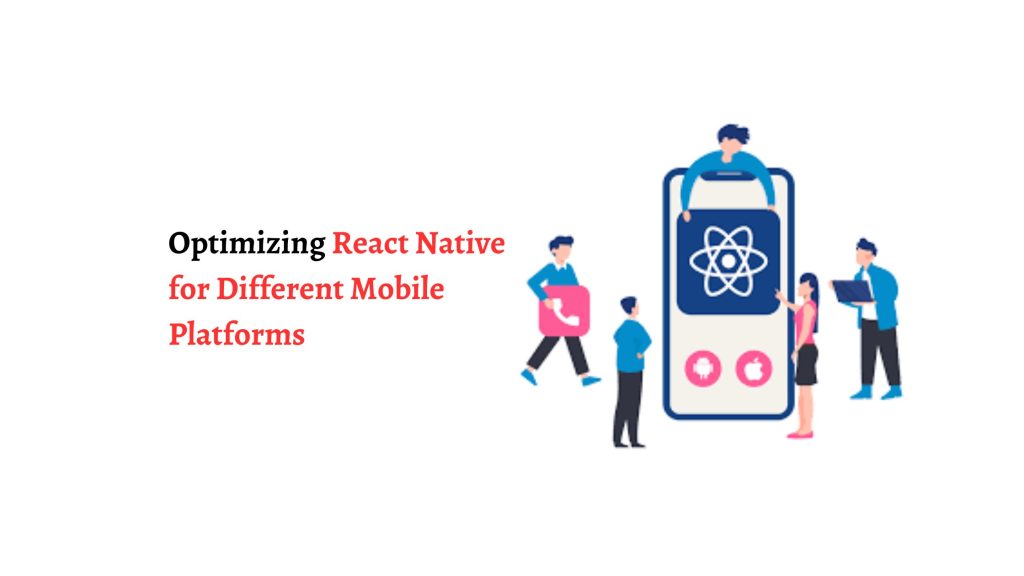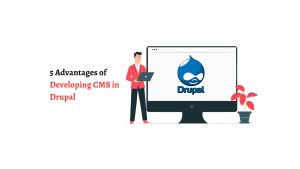Optimizing React Native for Different Mobile Platforms

A flexible framework for building cross-platform mobile applications is React Native, which offers a robust method for creating apps for iOS and Android using a single codebase. However, significant planning and platform-specific optimization are needed to get the best possible performance and user experience on each platform.
Therefore, to enhance the user experience and performance of your app, you must partner with a React Native app development company. In this blog, we will explore the strategies and techniques for optimizing React Native for different mobile platforms, ensuring your app runs smoothly on both Android and iOS.
Understanding the Cross-Platform Challenge
By using the React Native framework, you can build an app with shared code and logic between Android and iOS. Here are the challenges you can face due to the inherent differences between these platforms.
1. Performance
Performance optimizations must consider platform-specific factors like hardware capabilities, memory management, and rendering.
2. Design and Layout
Various layout paradigms and design guidelines necessitate the adaptation of features, such as navigation bars, icons, etc.
3. Device Functionalities
Different implementations for Android and iOS may be needed for some device functionalities, such as sensor data or camera access.
4. User Experience
To guarantee an easy-to-use interface, platform-specific features like gestures, animations, and navigation should be taken into consideration.
Optimizing App Development for Android
When optimizing your React Native app for Android, keep these strategies in mind:
1. Design Consistency
Adhere to Material Design guidelines for Android to maintain a native look and feel. Utilize Android’s Adaptive Icons for launcher icons.
2. Performance Tweaks
Address performance bottlenecks specific to Android. Optimize images and minimize unnecessary renders for better runtime performance.
3. Permissions and Security
Android’s permission system is distinct from iOS. Ensure proper handling of runtime permissions and understand Android’s security model.
4. Back Button Handling
Android devices typically include a back button. Implement appropriate navigation and back button handling to ensure a smooth user experience.
Optimizing App Development for iOS
When optimizing for iOS, consider the following strategies:
1. Human Interface Guidelines
Follow Apple’s Human Interface Guidelines for iOS app design. Use the appropriate UI components, adhere to font and layout guidelines, and ensure that your app feels native.
2. Performance Profiling
Leverage Xcode’s performance profiling tools to identify and address performance issues specific to iOS. Optimize your app’s animations, interactions, and UI rendering.
3. Navigation Patterns
iOS uses a navigation stack for app flow. Implement navigation patterns that align with iOS guidelines and incorporate features like swipe-back gestures.
4. App Store Approval
Comply with iOS App Store guidelines to ensure your app passes Apple’s review process. Address any platform-specific restrictions, such as those related to app content and monetization.
5. Shared Code and Platform Detection
To efficiently manage platform-specific code, React Native provides mechanisms for conditional rendering and logic. By detecting the platform at runtime, you can execute platform-specific code blocks.
6. Third-Party Libraries and Native Modules
Consider the compatibility of third-party libraries and native modules. Some libraries may require platform-specific configurations or have limitations on certain platforms. Ensure that the libraries you use are well-maintained and offer cross-platform support.
7. Continuous Testing and User Feedback
Continuous testing on both Android and iOS devices is crucial to identifying and fixing platform-specific issues. Encourage user feedback and beta testing on both platforms to catch any issues that may arise during real-world usage.
Conclusion
Optimizing React Native for different mobile platforms is a multi-faceted task. It involves adhering to design guidelines, performance tuning, accommodating platform-specific behaviors, and managing shared code with care.
React Native app development services allow you to be aware of the specific characteristics of every platform. Additionally, it is also possible to develop a mobile application with React Native that provides an outstanding user experience on both iOS and Android platforms.
Also read Technology






